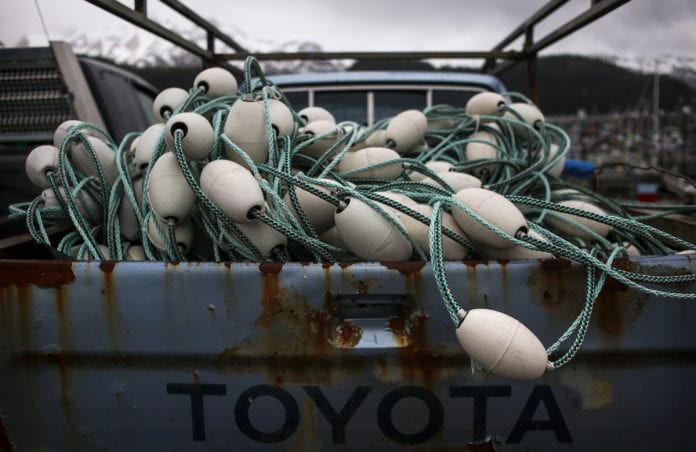
Seven grants totaling $1.5 million announced by the National Fish and Wildlife Foundation are earmarked to remove some 170,000 pounds of lost, abandoned or discarded fishing gear in Washington, Alaska, Florida, Hawaii, Maine and Puerto Rico.
The grants included $213,627 for the Island Trails Network at Kodiak to reduce entanglement and mortality of whales, Stellar sea lions and other marine mammals, and to increase awareness of the impact of entangling debris. Project leaders plan to engage volunteers and the commercial fishing industry in efforts to remove derelict fishing gear from prioritized locations in the Kodiak archipelago, including Kodiak, Afognak, Shuyak and minor outlying islands.
Another grant of $140,568 went to the College of William and Mary and Virginia Institute of Marine Science to reduce ecological and economic impacts associated with lost gear in coastal Washington and Alaska. That project will incorporate an innovative bio-hinge mechanism into Dungeness crab traps, to test an inexpensive mechanism to disarm derelict traps.
The grants, announced in September, were awarded through the Fishing for Energy program, a partnership of Covanta and the National Oceanic and Atmospheric Administration’s Marine Debris Program. Additional money was provided through community services funds from federal environmental prosecution.
The funds will also allow for research into new technologies to reduce harm from derelict gear and to support management efforts to remove gear from critical habitat for endangered species, including the northern right whale and green sea turtle.
Mark Dix, acting director of NOAA’s Marine Debris Program, noted that lost fishing nets, lines and traps can entangle wildlife, create navigation hazards and damage sensitive habitat.
“These projects will remove and prevent the continued impacts of fishing gear to our natural resources and economy,” he said.














